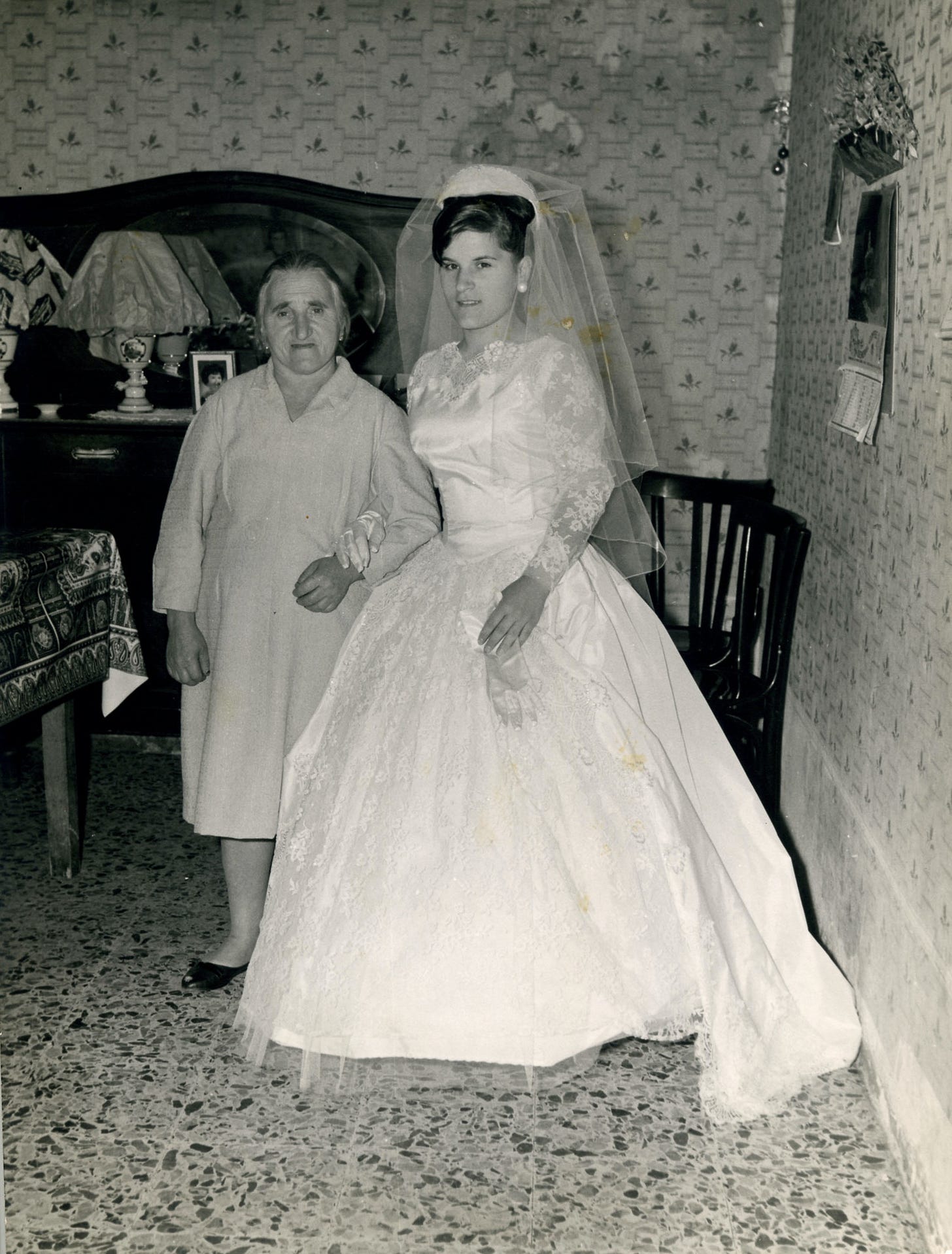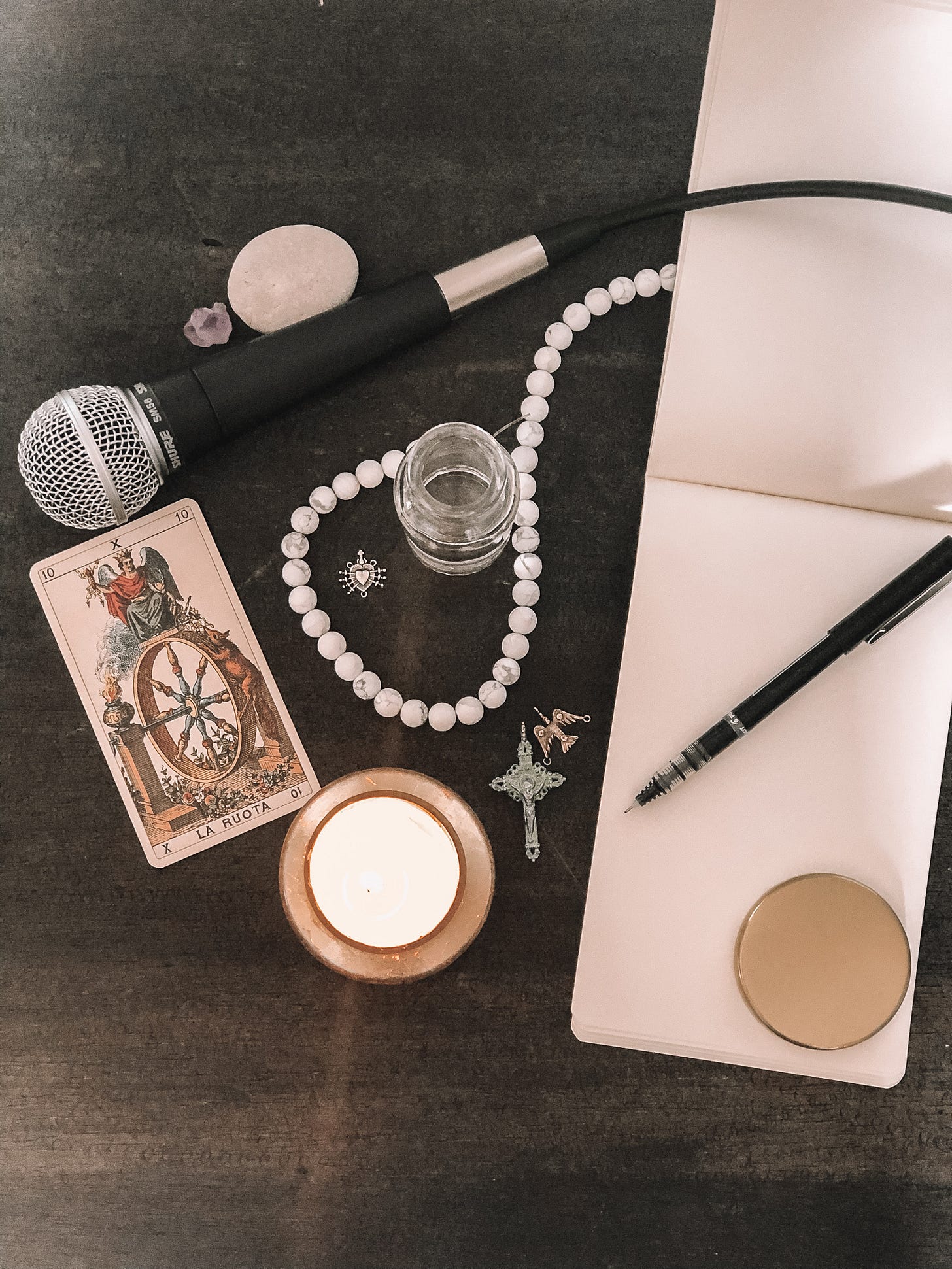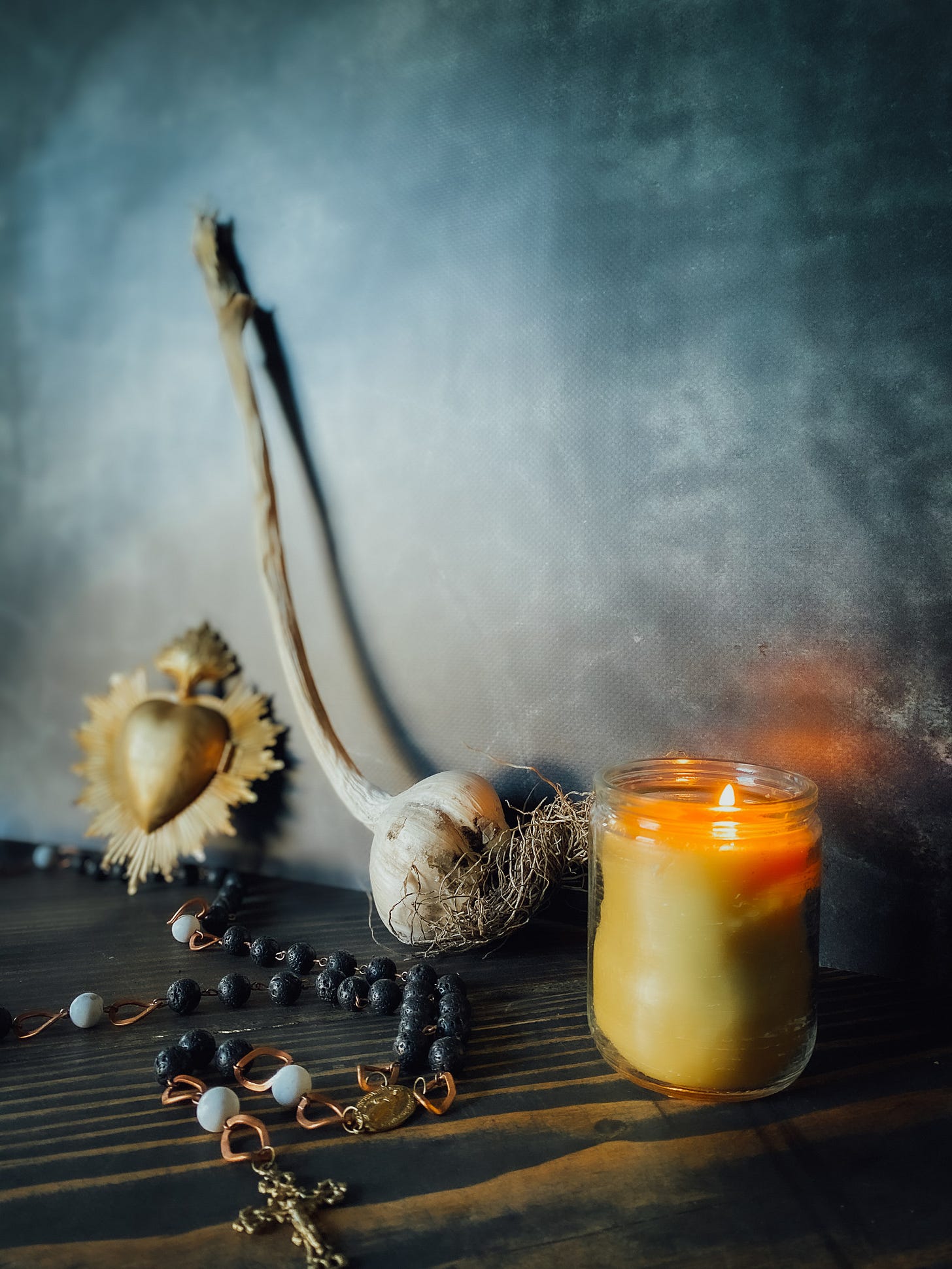We all lose people we love, and that alone is hard enough, but in addition to losing the physical body, we lose the intangible—the stories, memories, traditions and wisdom the person possessed. I remember feeling this deeply when, in my late 20s, my father suddenly passed. What had I not asked him, the chance gone now forever? What connections between the past and the present did I fail to make while he was still here to help me bridge the gap? I had spent a lot of time at the kitchen table with my father, listening to stories about his childhood in Southern Italy and his early years in America, and even still I felt I hadn’t learned enough. And then the chance was irrevocably gone. What a double sadness fell upon my heart.
I turned to writing as a way to grieve, and because I’d been turning to writing all of my life, but I also began to write the story of my ancestors because I suddenly understood—rather viscerally—that time would not wait for me. I started to speak to my mother at length, asking her to illuminate aspects of my family’s beginnings; I spoke to elderly aunts, not only seeking new stories, but corroboration of the stories I’d heard from others. And I began to research, gather audio, photography and create collages, collecting not only the story of my ancestors, but of course my own story: Why things were as they were during my childhood; how I’d been shaped by a past of which I wasn’t even a part; how far we’d come and how much remained the same; what aspects of my personality may have been passed down to me or shaped by other people’s experiences; and how my ethnic culture and roots influenced so many of my memories.
These stories illuminated many aspects of who I am. I learned, for instance, why it’s difficult for me to be as relaxed as I’d like to be; it’s not an excuse, but an explanation. There are a lot of hot tempers, proud chins, vendettas, grievances and just plain crazy behavior in my bloodline. I learned that I come from brave people and also terrible people, and that sometimes they were the same person. Some of my behaviors are long standing and inherited, something to keep in mind as I try to work through them and live better than many of my ancestors did. These stories also taught me that, considering who and what I come from, I’m actually doing pretty well when it comes to being calm and peaceful in my dealings and relationships! If only a mere generation before me was fire, tempests and short tempers, I’ve come a long way in just one turn of our DNA. It gifts me a bit of gentleness with myself.
In gathering these stories and assembling them into a narrative, the person I have perhaps one of the closest yet most complex relationships with—my mother—also emerged as the heroine of our family story. For all the rockiness that might lie between our decades together, I clearly see her as remarkable, and I admire her; writing her story showed me that. As I put the pieces of her life together into a creative cohesion, I forgave her her shortcomings, because I saw how so many people had come up short when raising her. I saw that she, too, had done a pretty good job in just one turn of our DNA of changing how our lineage parents. I found gratitude for that transformation, and the pain of my own experience lessened in the light of that gratitude.
Family stories have the power to do these kinds of remarkable things. Coupled with the act of writing, we’re walking into sacred space where a lot of clarity and peace can be unearthed. We write, take photographs, draw, paint, listen, and in so doing take the time to settle into and consider the past, and the universe brings us balm and revelation as reward.
Epigenetics, or what is colloquially called blood memory, the theory that traumas and experiences of our ancestors get passed down to us in our DNA, points to the importance of knowing the stories of those who came before. We are the continuation of those stories, it turns out. They can show up in those habits we can’t seem to break or explain, from depression to physical ailments to phobias, and if we don’t have a bit of clarity on this point, these stories, without our even knowing, can ruin us. Family constellations, a form of therapy that posits the traumas of our parents and ancestors can haunt us emotionally and psychologically, also shows that what happened in our families matters in a very real way. Doctors ask for your family’s medical history in order to discern your odds of developing disease; blood memory and family constellations ask us to explore the mythology of our families in order to illuminate our psychological and emotional health.
I’ve been wanting to form a way to help others explore their ancestral stories for a long while now, and my newest offering, Tell the Story of Your Ancestors: A creative exploration of ancestry, culture & personal history is my way of doing just that. Combining writing, research and creativity, participants will begin a project of collecting, organizing and telling their family story. We’ll spend two weekend mornings together this September, learning about the best ways to gather information, begin, research, write and most importantly, to be inspired to bring the whole vision to completion.
I’m really excited about this “Autumn Writing Retreat.” As I’ve been planning behind the scenes, pulling together materials to use, my heart has raced with excitement to share this opportunity with you.
Space for this workshop is very limited, as I want to be able to provide excellent one-on-one attention to each person who attends. Enrollment will be honored on a first come, first serve basis.
I’ll be opening sign-up to the Instagram community later this week, but I wanted Substack subscribers to be the first to hear about this new workshop and give you the first chance at claiming a spot.
Some topics that we’ll cover include—
How to write about ancestors you knew or know stories about.
How to write about ancestors you didn’t know & know little about.
How to use photography, art & objects in your storytelling.
How to write your own story into the greater narrative.
How to write well.
Approaches to narrative.
Approaches to research.
Participants will receive a lovingly assembled printed booklet (because I’m old school like that, and I know you are, too!) several weeks before the workshop, along with writing assignments to bring to the first session. So the workshop will begin before the workshops even begins. If you’ve been wanting to embark on a project like this for some time, but just never knew how to get started, this is your opportunity.
You can learn more about the workshop, as well as claim your spot, here—Tell the Story of Your Ancestors.
If you have any questions, don’t hesitate to reach out. You can easily reply to this email or write me at dolores@bellafigurapodcast.com.
Hoping you’re as excited as I am about this new offering…
Thanks for being here with me, truly.
xoxo,
Dolores








I just wrote you an Email :)